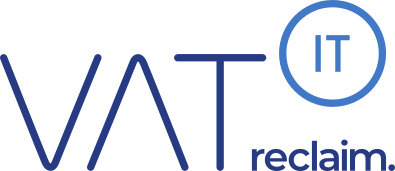
For any firm with a sales presence in multiple territories, keeping on top of receipts and invoices can be a near constant task. Software giant Citrix, which operates in APAC, EMEA and Japan, among other jurisdictions, employs a designated accounts payable department, as well as the latest travel and expenses monitoring assistance. However, in a fast-moving business, manually selecting and chasing VAT refunds across international transactions became increasingly difficult, says Judith D’Aguilar, global VAT director at the company.
“We had a whole accounts payable department looking at manual expenses, choosing the invoices they thought were reclaimable and processing the expenses in a very manual way,” she says. “We had complaints because it took a long time for payments to be made to employees, who had to go back and get receipts where there were none. Sometimes AP staff didn’t know how to categorise expenses; that manual process is prone to errors and delays.”
With these friction points, Citrix suspected that VAT refunds were slipping through the cracks. The company onboarded VAT IT to simplify processes and optimise recovery, only paying the firm a fee if funds were recovered.
In the first year, VAT IT recovered $900,000 (£750,000) for Citrix. “We can now say we are maximising our reclaim for all these entities. We can also see what is being incurred from an expense perspective, as well as what is recovered and what is in the pipeline.”
VAT IT specialises in identifying and reclaiming tax refund opportunities for international businesses using a mix of human and technological expertise. Operating like a VAT bounty hunter, the firm, which has 23 years of experience, only charges if it manages to recover money.
VAT IT has pulled back as much as £10m in a single year for a client. Yet the number of international businesses, both large and small, leaving cash on the table is growing in a rapidly changing global climate, says Marc Sevitz, managing director for global operations and enterprise at VAT IT.
“Citrix is a great example. As a successful global software business, it has sales teams moving between countries who stay in hotels and have travel expenditure that we recover VAT on,” he says.
“Smaller businesses are also missing important returns. If a firm gets back £200,000, that can make or break the business. In staffing costs, that £200,000 could mean five or six decent hires. How many sales or manufacturing staff is that, that could then help grow the business? That’s a whole evolution it might have left behind.”
International businesses have faced significant upheaval in recent years due to the pandemic, Brexit and the war in Ukraine. This has often forced them to switch supply chains and be exposed to new territories and jurisdictions. This means many firms are not aware of the refunds they are leaving unclaimed, says Sevitz.
“Brexit laws were such that it made it harder to recover VAT. The previous EU process was more digital, now the post-Brexit UK is much more manual. Saying to a business they have to do more paperwork forces extra time and extra mistakes. We see that in the money we reclaim for businesses,” he adds.
The number of international businesses, both large and small, leaving cash on the table is growing rapidly
Lockdown also forced people to work from home and while businesses have invested in new technology, many have cut costs in the subsequent economic downturn, says Sevitz. “Often one of the first things to go is finance teams. Businesses say they are going to do VAT internally and remotely across departments, yet none of whom are working in one office. That’s where mistakes get made.”
VAT refunds can be uncovered in the most unusual of places. For instance, pharmaceutical companies often find themselves using millions of test tubes each one produced in two different territories: the glass vials in one jurisdiction and plastic tops in another. A single fashion item may have buttons, cotton or zips produced in multiple places. This can mean VAT costs incurred at different points have to be claimed back.
Few firms are more vulnerable to this than a soft drink firm that sells 500 million bottles and cans across 28 countries. Before the firm partnered with VAT IT in 2018, not only did it need to claw back money from across varying territories and products, it also needed to marry up any VAT analysis with an expense management process that was complicated and dependent on inflexible technology.
The international firm was able to simultaneously sync its existing technology with VAT IT’s ‘VAT Cloud’, a cloud-based platform that has real-time reporting capabilities.
“VAT Cloud easily extracts expense data from Chrome River and automates, centralises and enhances the company’s VAT recovery and compliance,” says a spokesperson from the company. “Refunds go straight back into the business, boosting cash flow for future investment. It is easy to standardise and centralise VAT compliance when we originally thought it was a heavily localised function. Best of all is that VAT Cloud is easily accessible to our global VAT teams.”
The VAT Cloud client interactive portal allows businesses to have a continuous up to date view of their VAT claims process, what refunds are successful, and what is happening with each invoice and expense. This visibility gives critical insight into funding.
Alongside this technology, VAT IT has a strong human element, says Sevitz. “We are not just paper peddlers, we do not just take a firm’s invoices and give them to a VAT authority, we understand the process from end-to-end and know what to ask for. We have a team of 50 legal experts who work solely on understanding whether complex transactions have a VAT recovery opportunity and if there are queries from the tax office we answer those as well.”
Whether a business currently puts all its invoices and expenses in a drawer or a box, or uses an up-to-date digital expense management system, VAT IT can seamlessly collect them and immediately get to work, bringing value back into the business.
As D’Aguilar at Citrix says: “VAT IT has led us right. It has recovered for us and we’ve never had an audit because the firm reclaimed something it shouldn’t have. The company understands the rules, we trust them; it’s a win-win.”
For more information visit vatit.com

For any firm with a sales presence in multiple territories, keeping on top of receipts and invoices can be a near constant task. Software giant Citrix, which operates in APAC, EMEA and Japan, among other jurisdictions, employs a designated accounts payable department, as well as the latest travel and expenses monitoring assistance. However, in a fast-moving business, manually selecting and chasing VAT refunds across international transactions became increasingly difficult, says Judith D’Aguilar, global VAT director at the company.
“We had a whole accounts payable department looking at manual expenses, choosing the invoices they thought were reclaimable and processing the expenses in a very manual way,” she says. “We had complaints because it took a long time for payments to be made to employees, who had to go back and get receipts where there were none. Sometimes AP staff didn’t know how to categorise expenses; that manual process is prone to errors and delays.”
With these friction points, Citrix suspected that VAT refunds were slipping through the cracks. The company onboarded VAT IT to simplify processes and optimise recovery, only paying the firm a fee if funds were recovered.

